E-Lectures
Starting in Spring 2024, USNC-URSI is hosting E-Lectures about one to two times each Fall and Spring semester. Special thanks to Prof. Akhlesh Lakhtakia for organizing these E-lectures! You can find the announcements and videos for past E-lectures below. See the Get Involved and Stay Connected page for information on how to be notified of upcoming E-Lectures.
"An Overview of Metamaterials From a Transmission-Line Presepective"
By Prof. George V. Eleftheriades
Department of Electrical and Computer Engineering,
University of Toronto
Date: 27 February 2026
Time: 1300 MST
Abstract: In this seminar, I will present a broad overview of metamaterials and related engineered electromagnetic structures, with particular emphasis on understanding and designing them through a transmission-line approach. This perspective provides powerful physical intuition and offers a straightforward route toward implementing such engineered media.
Key scientific and technological milestones achieved over the past two decades will be highlighted. These include the demonstration of flat Veselago-Pendry lenses capable of focusing electromagnetic waves into subwavelength spots, the development of surface electromagnetic cloaks, and a wide range of multifunctional microwave components and antennas enabled by these engineered media.
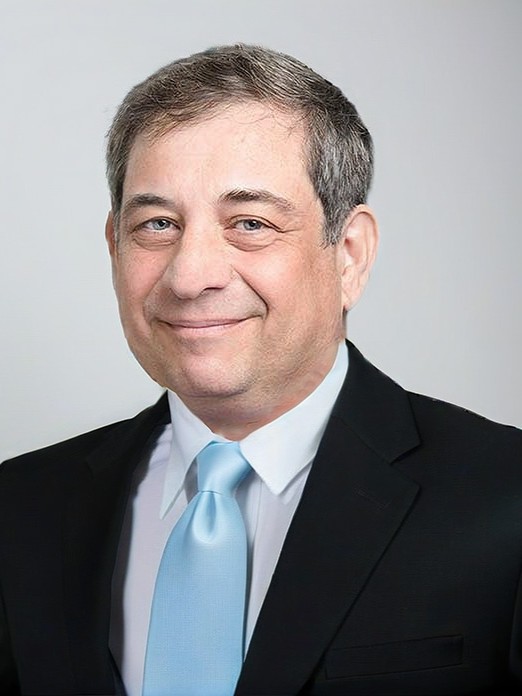 Biography: George V. Eleftheriades is a Professor in the Department of Electrical and Computer Engineering at the University of Toronto Canada. Prof. Eleftheriades introduced the concept of using transmission lines to realize negative-index metamaterials in 2002. For his contributions he was awarded the 2025 IEEE Electromagnetics Award, the 2019 IEEE Antennas and Propagation Society's Distinguished Achievement Award, the 2015 IEEE AP-S John Kraus Antenna Award and the 2008 IEEE Kiyo Tomiyasu Technical Field Award. He is an IEEE Fellow, a Fellow of the Canadian Academy of Engineering and a Fellow of the Royal Society of Canada.
Biography: George V. Eleftheriades is a Professor in the Department of Electrical and Computer Engineering at the University of Toronto Canada. Prof. Eleftheriades introduced the concept of using transmission lines to realize negative-index metamaterials in 2002. For his contributions he was awarded the 2025 IEEE Electromagnetics Award, the 2019 IEEE Antennas and Propagation Society's Distinguished Achievement Award, the 2015 IEEE AP-S John Kraus Antenna Award and the 2008 IEEE Kiyo Tomiyasu Technical Field Award. He is an IEEE Fellow, a Fellow of the Canadian Academy of Engineering and a Fellow of the Royal Society of Canada.
"Microwave Breast Cancer Detection: Past, Present and Future Directions"
By Prof. Cynthia M. Furse
University of Utah
Date: 27 October 2025
Abstract: Breast cancer is the second leading cause of death in women. Roughly 1 in 8 women, over 2.3 million women globally (in 2022), will be diagnosed with breast cancer, and 1 in 43 will die of it. Early detection and better treatments have led to a marked drop in breast cancer mortality (e.g., a 44% drop in the US from 1989 to 2022). Detection methods available today are x-ray mammography, ultrasound, and magnetic resonance imaging (MRI). These all require expensive equipment, well-trained technicians and radiologists, and generally the patient must travel to a medical facility to access them. This results in striking global inequities in breast cancer mortality.
Microwave methods have been developed to add an additional modality for breast cancer detection. Most types of tumors have electrical properties that are significantly different than healthy breast tissues. Antennas placed around the breast transmit and receive energy, which is used to create an image or other detection scheme to identify the presence of a tumor. These technologies have the potential to be less expensive and more portable (potentially even “wearable”), and the use of non-ionizing radiation can enable more frequent scans for people at higher risk.
This talk will review the types of microwave methods available for breast cancer detection, their historic development and current state of the art, as these systems move into clinical trials and commercialization, as well as remaining challenges and future opportunities.
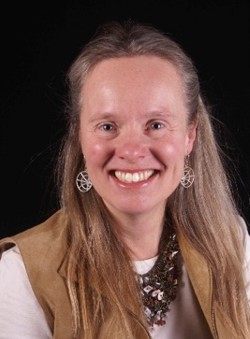 Biography: Prof. Cynthia M. Furse is a Distinguished Professor of Electrical and Computer Engineering at the University of Utah. She applies electromagnetics to sensing and communication in complex lossy media such as the human body. She is a Fellow of the IEEE, the National Academy of Inventors, and the Applied Computational Electromagnetics Society and has received numerous teaching and research awards including the 2020 IEEE Chen To Tai Distinguished Educator Award and the 2025 Harrington-Mittra Award in Computational Electromagnetics.
Biography: Prof. Cynthia M. Furse is a Distinguished Professor of Electrical and Computer Engineering at the University of Utah. She applies electromagnetics to sensing and communication in complex lossy media such as the human body. She is a Fellow of the IEEE, the National Academy of Inventors, and the Applied Computational Electromagnetics Society and has received numerous teaching and research awards including the 2020 IEEE Chen To Tai Distinguished Educator Award and the 2025 Harrington-Mittra Award in Computational Electromagnetics.
"Our Electromagnetic Window on the Universe"
By Dr. David DeBoer
University of California and Berkeley & Oxford University
Date: 20 February 2025
Abstract: As a shared resource, the electromagnetic spectrum is the new societal commons. The use cases are incredibly diverse. Thought, development, trust and empathy are required to successfully share this resource as efficiently as practicable. We rely heavily on its availability for the vast majority of our daily activities. The scientific use of the spectrum is vital to understand our Universe, as well as to characterize our changing environment and weather. This presentation will discuss some of the myriad uses and concerns of this scientific use.
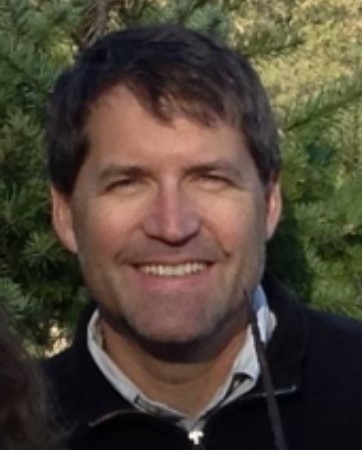 Biography: Dr. David DeBoer is a member of the research staff at the
University of California at Berkeley and
Oxford University, UK. Prior to these positions, he was the Assistant Director
of CSIRO's
Australia Telescope National Facility. Dr. DeBoer graduated from Harvard
University with a
Bachelor's degree in Astronomy and Astrophysics and from the Georgia Institute
of Technology
with a Ph.D. in Electrical and Computer Engineering. Dr. DeBoer was an Assistant
Professor of
Electrical and Computer Engineering at Georgia Tech then the Project
Engineer/Project Manager
for the Allen Telescope Array project before joining CSIRO in Australia.
Biography: Dr. David DeBoer is a member of the research staff at the
University of California at Berkeley and
Oxford University, UK. Prior to these positions, he was the Assistant Director
of CSIRO's
Australia Telescope National Facility. Dr. DeBoer graduated from Harvard
University with a
Bachelor's degree in Astronomy and Astrophysics and from the Georgia Institute
of Technology
with a Ph.D. in Electrical and Computer Engineering. Dr. DeBoer was an Assistant
Professor of
Electrical and Computer Engineering at Georgia Tech then the Project
Engineer/Project Manager
for the Allen Telescope Array project before joining CSIRO in Australia.
"Cognitive Radio: Driving Future Spectrum Exploitation"
By Prof. Sven G. Bilén
The Pennsylvania State University
Date: 17
September 2024
Organized by Prof. Akhlesh Lakhtakia
Abstract: Cognitive radio is a rapidly evolving technology to optimize and exploit spectrum via radios that can dynamically adapt their transmission parameters. Research on cognitive radio is important due to the increasing demand for use of the radio spectrum. This talk will provide an overview of cognitive radio technology, motivation for its development, and key concepts. The talk will also discuss the challenges associated with cognitive radio, such as spectrum sensing, dynamic spectrum access, and interference management, and present some recent advances and research efforts in addressing these challenges. The talk will conclude with several applications of cognitive radio that the speaker has been associated with.
 Biography: Sven G. Bilen, Ph.D., P.E. is Professor of Engineering Design,
Electrical Engineering, and
Aerospace Engineering at The Pennsylvania State University. He directs the
Systems Design Lab
and the Space Propulsion Lab, and is the founding director of the Certificate in
Space Systems
Engineering and the Student Space Programs Lab. Prof. Bilén’s research interests
include the
areas of space systems design; electrodynamic-tethers; spacecraft-plasma
interactions; plasma
diagnostics for space plasmas, plasma electric thrusters, and semiconductor
plasma processing;
cognitive and software-defined radio techniques and systems; wireless sensor
systems; 3D
concrete printing; innovative engineering design, systems design and new product
design;
engineering entrepreneurship; and global and virtual engineering design. He has
over three decades
of experience designing, building, and fielding innovative systems for harsh and
demanding
environments---from space to the Arctic. He employs a systems design approach to
ensure mission
success, translating early-stage needs into verified requirements and validated
deployed systems.
He has a strong interest in seeing technologies he has worked on and advanced
within a university
research environment to get ``into the wild.'' He is senior member of Institute
of Electrical and
Electronics Engineers; associate fellow of American Institute of Aeronautics and
Astronautics;
and member of American Geophysical Union, American Association for Engineering
Education,
International Council on Systems Engineering, and Sigma Xi.
Biography: Sven G. Bilen, Ph.D., P.E. is Professor of Engineering Design,
Electrical Engineering, and
Aerospace Engineering at The Pennsylvania State University. He directs the
Systems Design Lab
and the Space Propulsion Lab, and is the founding director of the Certificate in
Space Systems
Engineering and the Student Space Programs Lab. Prof. Bilén’s research interests
include the
areas of space systems design; electrodynamic-tethers; spacecraft-plasma
interactions; plasma
diagnostics for space plasmas, plasma electric thrusters, and semiconductor
plasma processing;
cognitive and software-defined radio techniques and systems; wireless sensor
systems; 3D
concrete printing; innovative engineering design, systems design and new product
design;
engineering entrepreneurship; and global and virtual engineering design. He has
over three decades
of experience designing, building, and fielding innovative systems for harsh and
demanding
environments---from space to the Arctic. He employs a systems design approach to
ensure mission
success, translating early-stage needs into verified requirements and validated
deployed systems.
He has a strong interest in seeing technologies he has worked on and advanced
within a university
research environment to get ``into the wild.'' He is senior member of Institute
of Electrical and
Electronics Engineers; associate fellow of American Institute of Aeronautics and
Astronautics;
and member of American Geophysical Union, American Association for Engineering
Education,
International Council on Systems Engineering, and Sigma Xi.
"Artificial Intelligence and Bio-Inspired Computational Techniques in Applied Electromagnetics"
By Magdy F. Iskander
On behalf of
Hawaii Advanced Wireless Technologies Institute,
University of Hawaii at Manoa
magdy@hawaii.edu
Date: 18 April 2024
Abstract: Use of bio-inspired computational techniques and artificial intelligence (AI) in advanced engineering applications has recently proliferated to transcend traditional systems performance beyond the logical next step. Inspired by the biological evolution process of natural selection and enabled by AI, these techniques leapfrog beyond regular design methodologies to deliver novel cutting-edge solutions.
In this lecture, I will describe the significant efforts made by my research group over the past 15 years, highlighting two main areas: (i) our use of genetic programming to design innovative, non-intuitive, and high-performance metamaterials that surpass human designs in diverse applications, and (ii) our applications of machine learning and potentially generative AI to develop "virtual clinical trials" that efficiently and safely calibrate and validate a novel chest patch RF device for monitoring vital signs and assess lung water content.
I will showcase actual examples and delve into validation approaches grounded on fundamental electromagnetic concepts, such as Prony's method for natural frequencies and equivalent circuit models. Concluding the lecture, I will outline how these innovations extend to other areas of electromagnetics, such as radio frequency (RF) propagation modeling in diverse terrains and intelligent integration of renewable energy in smart grids using reinforcement learning.
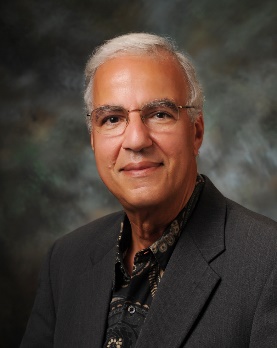 Biography: Magdy F. Iskander Professor of Electrical Engineering and
Director of the Hawaii
Advanced Wireless Technologies Institute (HAWT Institute), College of
Engineering, University of Hawaii at Manoa, Honolulu, Hawaii. Prior to joining
the
University of Hawaii in 2002, he was an Engineering Clinic chair Professor,
Electrical and Computer Engineering at the University of Utah. From 1997-99 he
was a Program Director at the National Science Foundation, where he formulated a
"Wireless Information Technology" Initiative in the Engineering Directorate. He
edited two special issues of the IEEE Transaction on "Antennas and Propagation
on
Wireless Communications Technologies," 2002 and 2006, co-edited a special issue
of IEICE journal in Japan in 2004, edited a special issue of the Applied
Computational Electromagnetic Society Journal in 1993, and edited two special
issues of the Journal of Microwave Power, 1983. He was the 2002 President of
IEEE
Antennas and Propagation Society, Distinguished Lecturer for IEEE AP-S
(1994-97),
Fellow of IEEE (1993), Life Fellow of IEEE, and Fellow of the Applied
Computational Electromagnetics Society.
Biography: Magdy F. Iskander Professor of Electrical Engineering and
Director of the Hawaii
Advanced Wireless Technologies Institute (HAWT Institute), College of
Engineering, University of Hawaii at Manoa, Honolulu, Hawaii. Prior to joining
the
University of Hawaii in 2002, he was an Engineering Clinic chair Professor,
Electrical and Computer Engineering at the University of Utah. From 1997-99 he
was a Program Director at the National Science Foundation, where he formulated a
"Wireless Information Technology" Initiative in the Engineering Directorate. He
edited two special issues of the IEEE Transaction on "Antennas and Propagation
on
Wireless Communications Technologies," 2002 and 2006, co-edited a special issue
of IEICE journal in Japan in 2004, edited a special issue of the Applied
Computational Electromagnetic Society Journal in 1993, and edited two special
issues of the Journal of Microwave Power, 1983. He was the 2002 President of
IEEE
Antennas and Propagation Society, Distinguished Lecturer for IEEE AP-S
(1994-97),
Fellow of IEEE (1993), Life Fellow of IEEE, and Fellow of the Applied
Computational Electromagnetics Society.
He authored the textbook Electromagnetic Fields and Waves, Prentice Hall, 1992; and Waveland Press, 2001; second edition 2012, edited the CAEME Software Books, Vol. I, II 1991-94; and edited four books on Microwave Processing of Materials, published by the Materials Research Society, 1990-96. He has published over 250 papers in technical journals and book chapters, has 11 patents, and made numerous presentations in national and international conferences. He is the founder and editor-in-chief of the Computer Applications in Engineering Education (CAE) journal, published by John Wiley (1992-present). He organized and was the general chair of 9 IEEE conferences both in Utah (2) and Hawaii (7).
Much of Dr. Iskander's research is funded by the National Science Foundation, US Army CERDEC, and Office of Naval Research and several corporate sponsors. He has received many teaching excellence and research awards including the 2012 University of Hawaii Board of Regent Medal for Excellence in Research and the 2010 Board of Regents' Medal for Teaching Excellence. In 2012 he received the IEEE AP-S Chen-To Tai Distinguished Educator Award, and the 2013 IEEE MTT-S Distinguished Educator Award. He also received the 2010 Northrop Grumman Excellence in Teaching Award, 2011, 2014, and 2021 Hi Chang Chai Outstanding Teaching Award, and the University of Utah Distinguished Teaching Award in 2000. In 1985, he received the ASEE Curtis W. McGraw National Research Award, and in 1991 the ASEE George Westinghouse National Education Award. 1992 he also received the Richard R. Stoddard Award from the IEEE EMC Society. He was a member of the 1999 WTEC panel on "Wireless Information Technology-Europe and Japan", and chaired two International Technology Panels on "Asian Telecommunication Technology" sponsored by NSF/DoD in 2001 and 2003.

